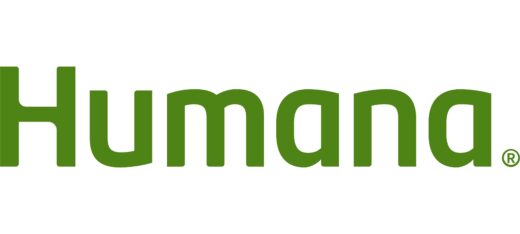Written by Adrienne Lin
We aim to help you make informed healthcare decisions. While this post may contain links to lead generation forms, this won’t influence our writing. We follow strict editorial standards to give you the most accurate and unbiased information.
Key Takeaways
- You have multiple coverage options before age 65, including ACA Marketplace plans, COBRA, and spouse coverage.
- ACA plans offer subsidies that significantly reduce premiums for many early retirees.
- COBRA keeps your current coverage, but it can be expensive due to full-cost premiums.
- Short-term plans and health-sharing ministries can work for limited, temporary needs—but come with important restrictions.
- Comparing options through Healthcare.com can help you find personalized matches and avoid costly gaps.
Overview
Early retirement has many perks, but losing employer-sponsored health coverage isn’t one of them. If you’re retiring before age 65, you’ll need medical insurance for early retirement to bridge the gap until Medicare begins.
The good news? You have more options than you might think. From Marketplace plans to COBRA and part-time work benefits, the right solution depends on your income, health needs, and how long you need health insurance before Medicare.
Compare options HERE & start your health plan journey.
What Is Health Insurance for Early Retirees?
Health insurance for early retirees refers to coverage options available between the time you leave the workforce and when you become eligible for Medicare at age 65. This period—often called the “coverage gap”—can last months or years, depending on when you retire.
Because health care needs and budgets differ widely, retirees often compare several plan types to find the right balance between cost and coverage.
Best Health Insurance Options for Early Retirees
Below are the most common paths retirees use to obtain medical insurance for early retirement, along with their pros and cons, as well as the individuals for whom each option is best suited.
1. ACA Marketplace Plans
ACA Marketplace plans offer comprehensive, federally regulated coverage with consumer protections. Insurers cannot deny coverage for pre-existing conditions, and every plan covers essential benefits, including prescription drugs and preventive care.
Why ACA Plans Matter for Early Retirees
- Guaranteed issue: no medical underwriting
- Income-based subsidies that lower monthly premiums
- Cost-sharing reductions for qualifying incomes
- Broad plan choices and networks
If your income drops significantly after retirement, you may qualify for premium tax credits, which can dramatically reduce your monthly costs. Use our ACA Subsidy Calculator to estimate your potential savings.
Best For
Retirees with low-to-moderate income who want predictable, comprehensive coverage.
Potential Drawbacks
- Networks may be narrower than employer plans
- Income changes may affect subsidy eligibility
Best ACA Plans By Carrier
| Carrier | Best For | Key Highlights |
| Blue Cross Blue Shield (BCBS) | Nationwide Coverage | 36 affiliates; ACA plans in all 50 states, D.C., and Puerto Rico; broad networks and strong nationwide flexibility. |
| Anthem | Customizable Plans | BCBS affiliate; flexible ACA options; strong preventive and mental health coverage; optional dental/vision add-ons. |
| UnitedHealthcare (UHC) | Provider Networks | ACA plans in 30+ states; large provider networks; robust telehealth and digital tools. |
| Cigna Healthcare | Digital Tools | Digital-first plans; excellent telehealth and care coordination; ideal for tech-savvy families. |
| Ambetter Health (Centene) | Marketplace Value | Affordable plans in 29 states; wellness rewards; chronic-care management support. |
| Oscar Health | Digital Experience | App-based, virtual-first care; streamlined, tech-driven healthcare experience. |
Insights in the table are based on Best ACA Health Insurance Plans for Individuals and Families in 2026, from Healthcare Insider, an educational resource within the Healthcare.com network.
2. COBRA Continuation Coverage
If you’re leaving a job with group coverage, COBRA (Consolidated Omnibus Budget Reconciliation Act) lets you keep the same plan for up to 18 months.
Why COBRA Matters
- You keep the same plan and doctors
- No new deductibles or out-of-pocket resets
- Smoothest transition—no coverage gaps
Watch Out For
- You pay the entire premium plus a 2% administrative fee
- Costs may be 2–3x higher than what you paid while working
Best For
Retirees close to meeting their deductible or out-of-pocket max, or those who want to avoid new networks and coverage disruptions.
3. Spouse’s Employer-Sponsored Health Insurance
If your spouse is still working, you may join their employer’s health plan.
Why Spouse Coverage Matters
- Often more affordable than ACA or COBRA
- Access to employer-negotiated group rates
- Stronger networks and lower deductibles in many cases
Things to Note
- Enrollment may require a qualifying life event or open enrollment
- Some employers impose spousal surcharges
Best For
Retirees with partners who have dependable coverage through their employer.
Compare options HERE & start your health plan journey.
4. Short-Term Health Insurance
Short-term health insurance, also known as Short-term Medical (STM) plans, offers temporary coverage for 30–364 days, depending on your state and the insurer. These plans are not ACA-compliant and should only be used briefly.
Why Short-Term Coverage Matters
- Immediate enrollment—no waiting periods
- Lower premiums compared to ACA plans
- Helps cover temporary gaps
Keep in Mind
- Often excludes pre-existing conditions
- May not include mental health, maternity, or preventive care
- Benefits are capped and vary widely
Best For
Healthy retirees who only need short-term coverage and understand the limitations.
Which Carriers Offer Short-Term Health Insurance?
| Insurance Company | Coverage Highlights | Additional Offerings |
| Companion Life Insurance Company (Pivot Health) | Visit any doctor (no network); includes telehealth/video consults | Dental and vision plans |
| Everest Reinsurance Company | Co-pays: $30–$50; deductibles: $1,000–$10,000; no prescription coverage unless hospitalized | Accident coverage; disability income protection for sports teams |
| Independence American Insurance Company | Covers lab tests, ER visits, hospital stays; excludes pre-existing conditions and sports injuries | Hospital & Surgical Indemnity; Dental & Vision plans |
| National Health Insurance Company (National General) | Uses Aetna or Cigna PPO networks; doctor visit $50; generic Rx $10 copay; coverage up to 3 years | Supplemental coverage plans |
| UnitedHealthcare (Golden Rule Insurance Company) | Offers TriTerm medical (up to 3 years); broad range of short-term options | Accident & Dental Insurance bundles; preventive dental coverage |
Insights in the table are based on Best Short-Term Health Insurance Companies in 2025, from Healthcare Insider, an educational resource within the Healthcare.com network.
5. Health Care Sharing Ministries (HCSMs)
HCSMs are voluntary, membership-based programs, not insurance, that help members share large medical expenses.
Why HCSMs Matter
- Much lower monthly contributions than insurance premiums
- Can help with unexpected medical bills
Caveats
- Not bound by ACA protections
- May exclude pre-existing conditions or limit benefits
- Not ideal for those with ongoing medical needs
Best For
Faith-based retirees seeking lower monthly costs and willing to accept non-guaranteed benefits.
6. Part-Time Jobs with Health Benefits
Some companies offer health insurance to part-time workers, an increasingly popular choice for early retirees seeking supplemental income with coverage.
Examples of Employers Offering Part-Time Benefits
- Starbucks
- Costco
- Trader Joe’s
Why This Option Matters
- Access to group health insurance
- Extra income and flexibility
- Great option if you want purpose or social engagement in retirement
Best For
Retirees willing to work a limited schedule to secure affordable insurance.
Comparison Table: Best Medical Insurance for Early Retirement
| Option | Cost | Coverage Level | Best For | Not Ideal For |
| ACA Marketplace | Moderate (often subsidized) | Comprehensive | Moderate–low income | Those wanting large PPO networks |
| COBRA | High | Comprehensive | Keeping existing coverage | Budget-conscious retirees |
| Spouse’s Plan | Low–Moderate | High | Spouse with job benefits | Single retirees |
| Short-Term Health Plans | Low | Limited | Healthy, temporary needs | Chronic conditions |
| HCSMs | Low | Limited/variable | Faith-based members | High medical needs |
| Part-Time Work Plans | Low–Moderate | High | Retirees open to work | Non-working retirees |
How to Choose the Best Coverage Option (Step-by-Step)
- Assess your income after retirement.
Lower income may unlock generous ACA subsidies. If you don’t qualify, learn more about ACA marketplace alternatives to compare benefits, networks, and costs. - Estimate your health care usage.
Do you have conditions requiring specialist care or medications? - Check timing before Medicare.
The longer your gap, the more important sustainable premiums become. - Evaluate your providers.
Keeping the same doctors? COBRA or spouse plans may be best. - Compare personalized options.
Use our parent company, Healthcare.com’s plan comparison tool to compare prices, networks, and out-of-pocket costs.
FAQs: Health Insurance Before Medicare
Do early retirees qualify for ACA subsidies?
Yes. Subsidies are based on adjusted gross income, not employment status. Early retirees with reduced income often qualify, according to the Kaiser Family Foundation.
Is COBRA worth it for early retirees?
It can be—especially if you have ongoing treatments or want to avoid switching doctors.
What if I only need coverage for a few months?
A short-term plan may work, but review exclusions carefully.
Can I join my spouse’s plan anytime?
You typically need a qualifying life event, such as retirement, or you must wait for your employer’s open enrollment.
Bottom Line: Your Path to Affordable Early Retirement Coverage
Leaving the workforce early doesn’t mean losing peace of mind. With options ranging from ACA Marketplace plans to spouse coverage and part-time work benefits, you can find health insurance for early retirees that fits your needs and budget. Start by assessing your income, health needs, and desired level of flexibility.
You can compare plans instantly on Healthcare.com or speak with a licensed Medicare agent who can walk you through your options and help you avoid costly gaps in coverage.
Shop for a Medicare plan with additional benefits!
Thank you for your feedback!








